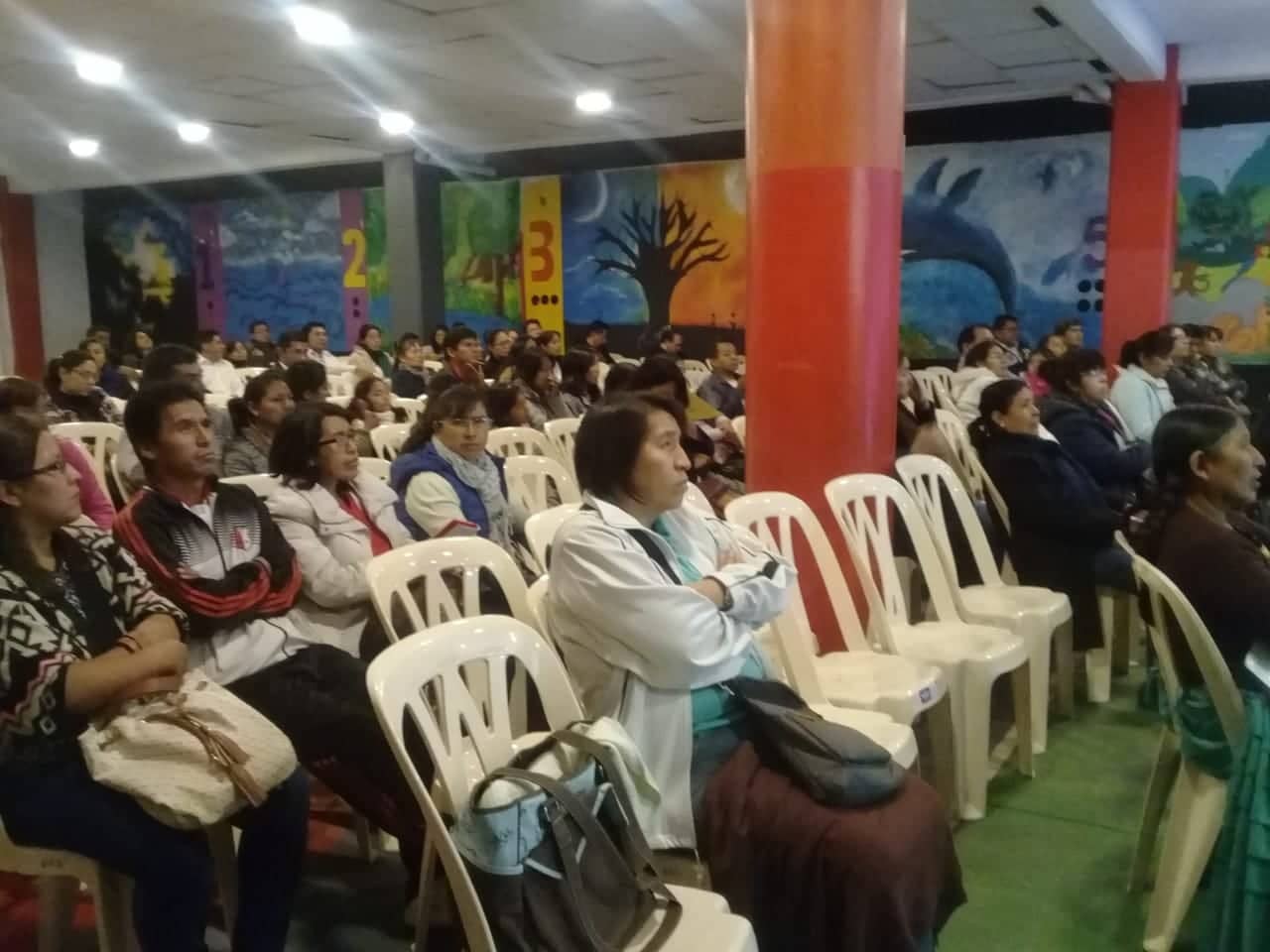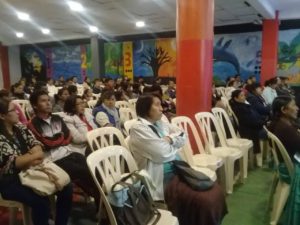
For years we have spoken to many Bolivians about the lack of services and resources for people with Autism Spectrum Disorders (ASD) in Bolivia. Thanks to the collaboration of the US and Bolivian Partners of America Chapters, Professors from the University of North Carolina, Chapel Hill; Brigham Young University, Salt Lake City; two Autism Specialists from New Mexico, an ASD specialist from Arkansas and “Autism Speaks”. We are now seeking financial assistance to help fund an important component of this project
We believe that this project, although successful since 2008 when we started, will have limited growth potential without some paid staff and resources in the U.S. and Bolivia to coordinate the implementation of our plan. It is time to establish an office in the Raleigh, Durham or Chapel Hill area accessible to the current professionals and other resources. Our goal is to eventually hire a part-time paid staff person in both locations. We do not currently have funding for the project, but finding space for an office would be part of our application process. We would negotiate a rental agreement for office space and other services.
We have encouraged parents and professionals to establish Coordinating/Leadership Committees in several Bolivian Departments. Representatives of these groups met with Bolivian Ministries of Education and Health and Sport and the Pan American Health Organization (PAHO) office in Bolivia. Several other Bolivian organizations and individuals have been identified as potential collaborators and are included in the planning process.
Also, the Bolivian and U.S. professionals participating in the Project strongly recommend increasing the number of people knowledgeable about the methods and applications of TEACCH principles. This would be our second capacity-building initiative to secure funding and contract with the TEACCH Program at the University of North Carolina, Chapel Hill, to hold 2, 3-day TEACCH seminars in Bolivia in 2019. The TEACCH Program already has a history of presenting in Spanish-speaking countries so they are already prepared to meet the need of having the material in Spanish and English-Spanish translation for the presenters.
Methods and procedures of TEACCH- set of core services and demonstration programs meeting the clinical, training, and research needs of individuals with Autism Spectrum Disorder, their families, and professionals through the world and across the state of North Carolina. “The premise of this foundation is an understanding of the learning styles of individuals with ASD and how to use teaching strategies that capitalize on learning strengths. An emphasis is placed on the use of Structured TEACCH principles to teach individuals with ASD skills in the areas of academics (literacy and numeracy), communication, independence, social and leisure, vocational, relaxation, and coping strategies.” (teacch.com/trainings/five-day-classroom-training)” Copied from the https://teacch.com/trainings/five-day-classroom-training/
The Spanish-language resources we are developing for the Bolivian project could be shared with the Autism Society (e.g., sharing the Spanish-language video series and other Spanish-language presentation materials). The group could also offer to do workshops or in-services about ASD in Spanish.
Our long term goal is to help all nine Departments improve existing services and increase a comprehensive continuum of services for those diagnosed with ASD/TEA. We have contacts in the Departments of La Paz, Chuquisaca (Sucre), Cochabamba, Oruro, Santa Cruz, and Tarija. We also plan to add Potosi, Benni, and Pando to the project.
We plan to help build a model CONTINUUM OF SERVICES including, but not limited to the following: early identification, diagnosis, treatment at home or in a program, parent training; preschool/ other schooling, vocational/work/supported employment, adult intermediate care, housing at different levels, post-high school, independent living and community consultation.)

Some specific suggestions:
- Provide support and training to Bolivia autism leaders in the diagnosis of autism.
- Arrange for TEACCH seminars to be held in several locations throughout Bolivia to help upgrade and increase training for professionals about the TEACCH concepts and strategies.
- Facilitate sending an Occupational Therapist or Vocational Services professional (with vocational assessment background) to begin developing vocational services for the older (late teens through employment ages) person with TEA/ASD
- Nearly all professionals who desire to get a Master’s or Doctorate Degree MUST leave Bolivia to receive advanced training. The Psychology Department at UMSA (Universidad Mayor de San Andreas) in La Paz, has expressed interesting in adding courses to create a Master’s Degree in Autism or related neuroscience degree. This could include courses also for medical students.
Courses could be located in appropriate Departments and/or Allied Health and Medical School curriculum in Speech and Audiology, Occupational Therapy, Psychology, Pediatric Medicine, Neurology, Special Education and other courses. UNC-Chapel Hill and various Arkansas and Utah Universities volunteer to review curriculum for relevancy in autism assessment, treatments, and adaptive environments;
- We encourage ASHA members in Bolivia (particularly La Paz) to apply for the ASHA-PAHO collaboration designation. If accepted, this project could receive funding from ASHA and PAHO for professional visits and consultations. Honduras, El Salvador, and Guyana were self-identified in 2013. Paraguay, Cuba, and Ecuador were chosen in 2016 and Belize were added in 2017. It is reported that new projects will be selected in 2018-19. The request needs to come from Bolivia through the PAHO representative.
- Parent groups and professionals working with persons having the diagnosis of ASD/TEA mentioned numerous times during my visit the need for teachers to have a better understanding of how to deal with behaviors in the classroom. We are ready to help with this issue if the invitation comes from Bolivians active in this project.
- Linda Watson and others will continue to create videos and other media modes to be used in telemedicine locations throughout Bolivia. Distribute the Spanish-language videos now available at https://www.med.unc.edu/ahs/pearls/service/en-espanol/
By Hank Graden, Board Member, NC Partners of the Americas